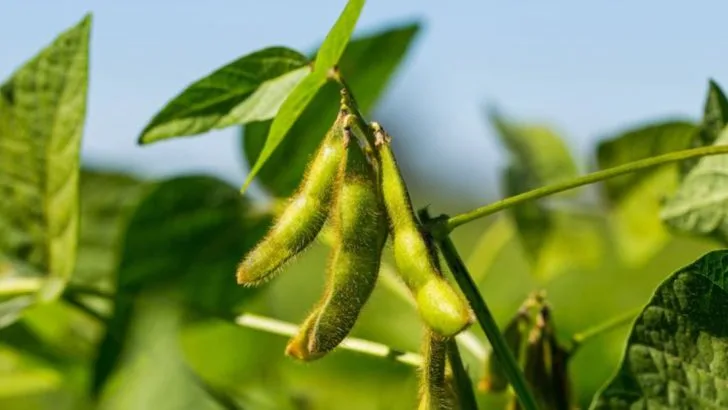Healthy soil is the backbone of any thriving vegetable garden, and nitrogen is one of the most essential nutrients plants need to grow strong and productive. But instead of relying solely on synthetic fertilizers, why not let nature do the work? Certain plants can actually improve your soil by fixing nitrogen directly into the ground, creating richer, more fertile conditions for everything around them.
These 15 nitrogen-boosting plants—from classic legumes to surprising green manure choices—can transform tired soil into a productive powerhouse. Whether you’re planning a full-season crop rotation or just want to improve your garden’s long-term health, these plants offer a natural, sustainable boost that benefits vegetables, flowers, and even fruiting plants nearby.
Alfalfa
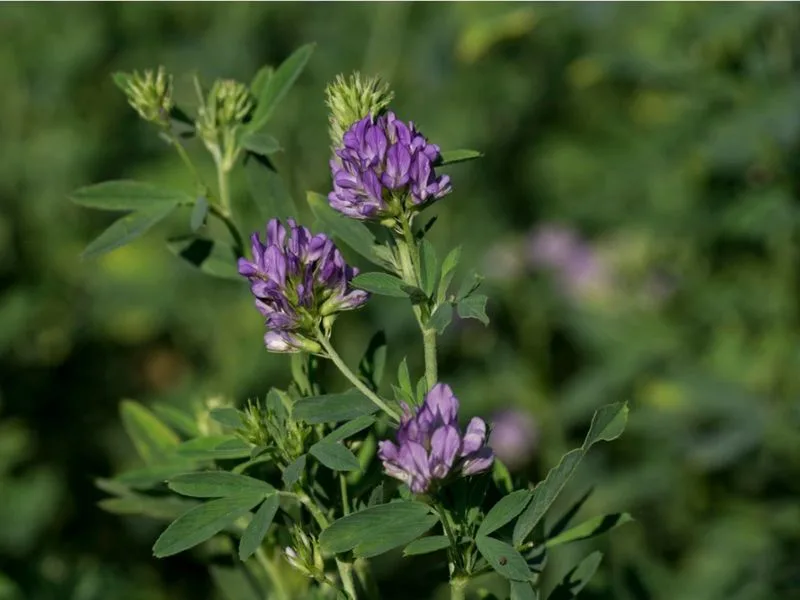
Known for its deep root system, alfalfa is a powerhouse when it comes to nitrogen fixation. Its roots delve deep into the soil, breaking up compaction and improving water infiltration. This makes it an excellent companion for other plants, enriching the soil as it grows. Alfalfa can be used as a cover crop or green manure, and its nutrient-rich foliage can be tilled back into the soil. Embrace this plant for its ability to rejuvenate tired garden beds, making them ready for the next planting season. Its adaptability to various climates is an added bonus.
Clover
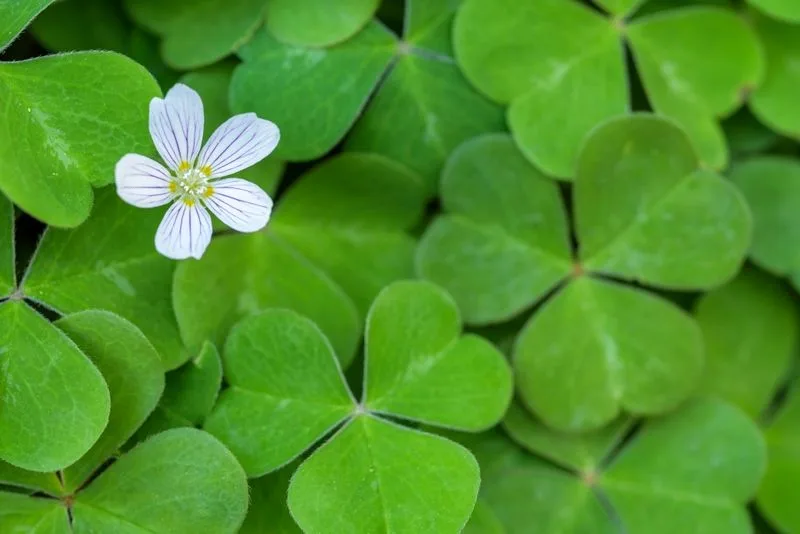
Clover’s ability to fix atmospheric nitrogen into the soil is remarkable. Its low-growing, dense foliage provides excellent ground cover, reducing soil erosion and suppressing weeds. Clover is often interplanted with other crops, benefiting them through nutrient-rich soil. The plant thrives in a wide range of soils and conditions, making it a versatile choice for gardeners. Clover flowers attract bees and other pollinators, enhancing biodiversity in your garden. Whether you choose red, white, or crimson clover, each variety offers unique advantages.
Soybeans
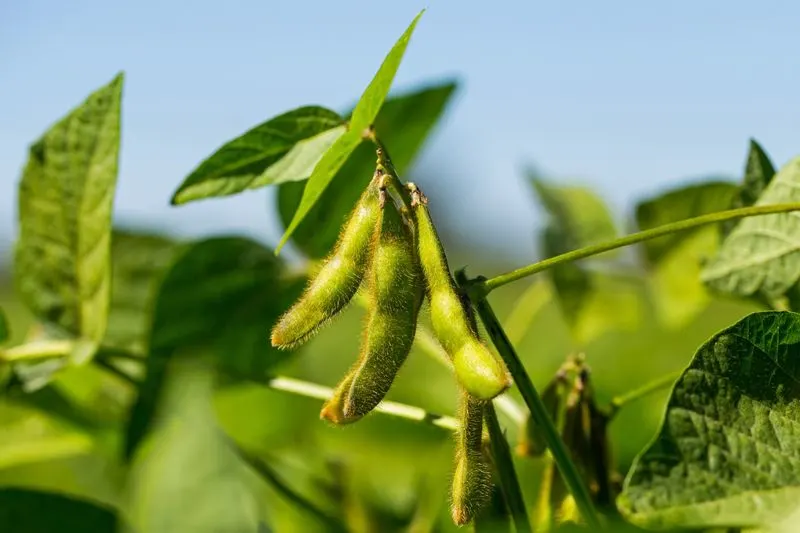
Soybeans are not just for commercial farming; they make an impressive addition to home gardens as well. These plants are efficient nitrogen fixers, working symbiotically with bacteria in the soil. The nitrogen fixed by soybeans is readily available to subsequent plants, improving their growth. Besides their soil benefits, soybeans produce nutritious pods that can be harvested for fresh consumption or storage. Their presence in the garden can lead to healthier, more productive soil, benefiting both your current and future crops.
Peas
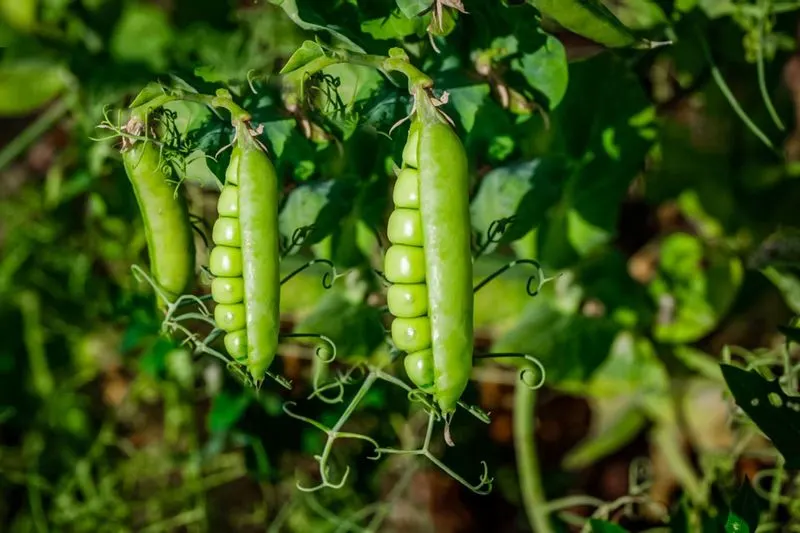
Peas are a gardener’s delight, offering both edible pods and soil enrichment. As nitrogen fixers, peas partner with soil bacteria to convert atmospheric nitrogen into a form that plants can use. This process improves the soil quality for future planting. Peas are easy to grow, requiring minimal care once established. Their tendrils climb supports elegantly, making them visually appealing as well. Planting peas can lead to a more nutrient-rich garden, ensuring that your future crops have a solid foundation for growth.
Lentils

Lentils are more than just a pantry staple; they’re beneficial garden companions. As legumes, they engage in nitrogen fixation, boosting soil fertility. Lentils grow well in cooler climates and are relatively low maintenance. Their small, attractive flowers add a splash of color, while their ability to improve soil structure makes them an asset in crop rotation. Including lentils in your garden plan can lead to healthier soil and more bountiful harvests. Their dual role as a food source and soil enhancer makes them invaluable.
Vetch
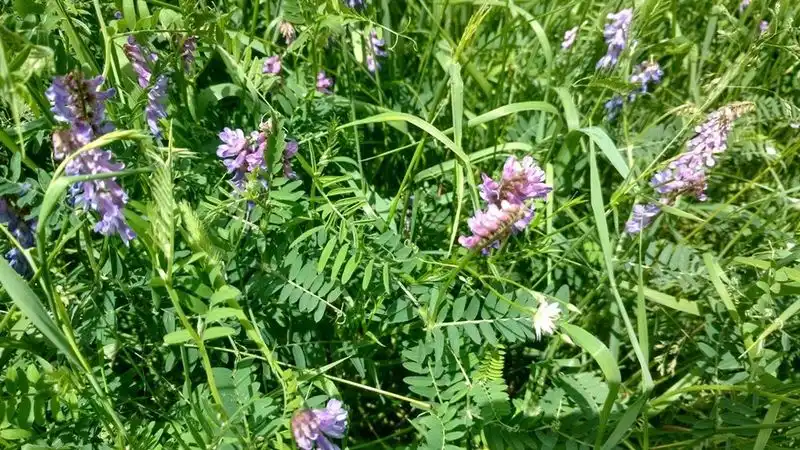
Vetch is often used as a cover crop, known for its exceptional ability to fix nitrogen. This plant thrives in a variety of soil types and climates, offering gardeners flexibility. As it grows, vetch enriches the soil with nitrogen, preparing it for future crops. Its attractive purple flowers not only beautify the garden but also attract beneficial insects. Vetch’s rapid growth and dense foliage suppress weeds, making it a practical choice for organic gardens. Including vetch in your rotation can enhance soil vitality and productivity.
Fava Beans
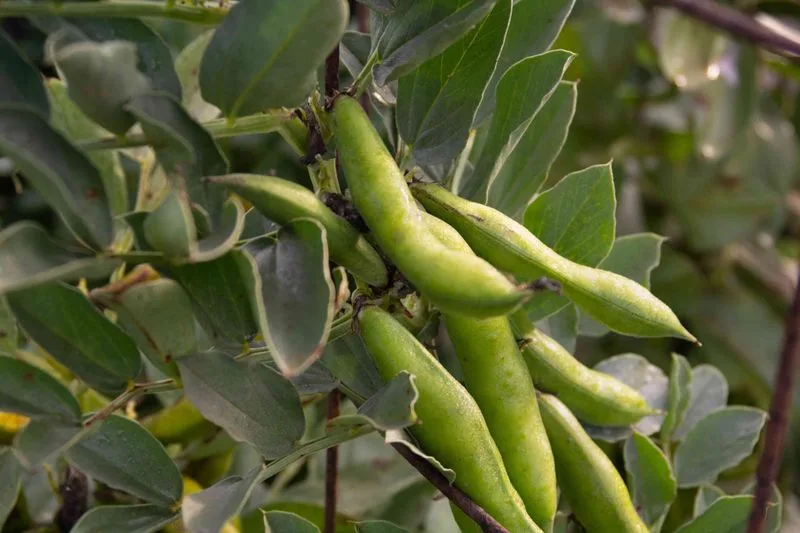
Fava beans are a gardener’s friend, known for their robust nitrogen-fixing capabilities. These plants add significant nutrients to the soil, benefiting subsequent crops. Fava beans thrive in cooler weather, making them ideal for spring planting. Their large, white flowers with black spots are not only attractive but also attract pollinators. As they grow, these beans improve soil structure and fertility, setting the stage for a productive garden. Harvesting fava beans adds a delicious element to your fresh produce lineup.
Lupines

Lupines bring a touch of elegance to gardens with their tall, striking flower spikes. Beyond their beauty, they play a crucial role in nitrogen fixation. Lupines work symbiotically with soil bacteria to convert nitrogen, improving soil health. They are adaptable to various soil types and are drought tolerant, making them suitable for diverse environments. Including lupines in your garden not only enhances aesthetics but also fosters a healthier ecosystem. Their ability to thrive in less-than-ideal conditions adds to their appeal.
Sweet Peas

Sweet peas are cherished for their fragrant blooms and vibrant colors, but their ability to fix nitrogen is equally impressive. These climbing plants enrich the garden soil, supporting the growth of nearby plants. Sweet peas prefer cooler climates and require support to reach their full potential. Their attractive flowers attract pollinators, enhancing the biodiversity of your garden. By incorporating sweet peas, you can enjoy both visual beauty and improved soil health. Their dual benefits make them a popular choice among gardeners.
Birdsfoot Trefoil
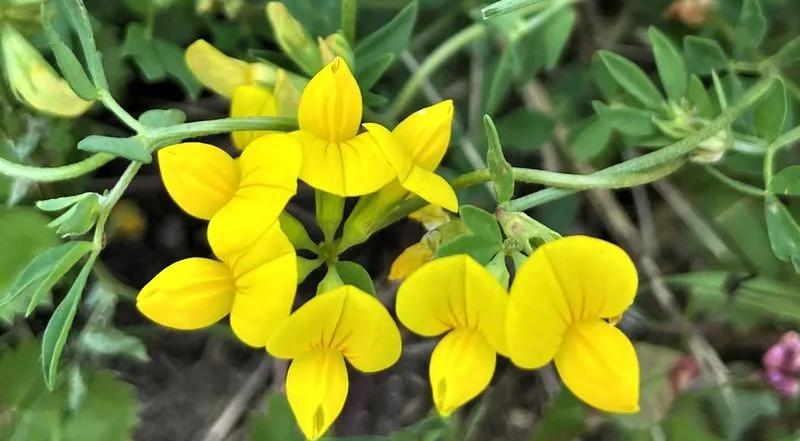
Birdsfoot trefoil is a versatile plant, often used in pastures and gardens for its nitrogen-fixing properties. Its bright yellow flowers attract bees and other pollinators, contributing to a vibrant garden ecosystem. This plant thrives in poor soil conditions where others may struggle, making it a valuable addition to challenging areas. Birdsfoot trefoil’s hardy nature and ability to improve soil fertility make it a favorite for organic gardening. By planting it, you enhance soil quality while supporting wildlife, creating a balanced environment.
Cowpeas

Cowpeas are robust legumes that bring a wealth of benefits to the garden. Known for their ability to fix nitrogen, they enhance soil fertility while providing a nutritious food source. Cowpeas are drought-tolerant and thrive in warm climates, making them ideal for summer planting. Their dense foliage helps suppress weeds, contributing to a healthier garden ecosystem. Incorporating cowpeas into your garden plan ensures soil enrichment and a bountiful harvest. Their resilience and dual-purpose nature make them a practical choice for gardeners.
Chickpeas
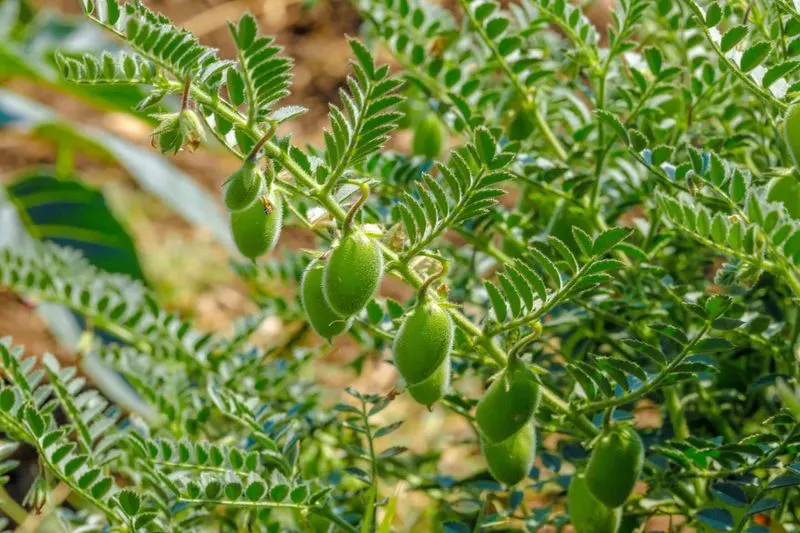
Chickpeas are not only a staple in many diets but also a valuable garden plant. These legumes engage in nitrogen fixation, enriching the soil for future crops. Chickpeas are suited to dry, arid conditions, making them a resilient choice for challenging climates. Their small, white flowers add a subtle beauty to the garden, while their pods provide a nutritious harvest. By planting chickpeas, you improve soil health and enjoy a sustainable food source. Their ability to thrive in less-than-ideal conditions is noteworthy.
Lablab Beans
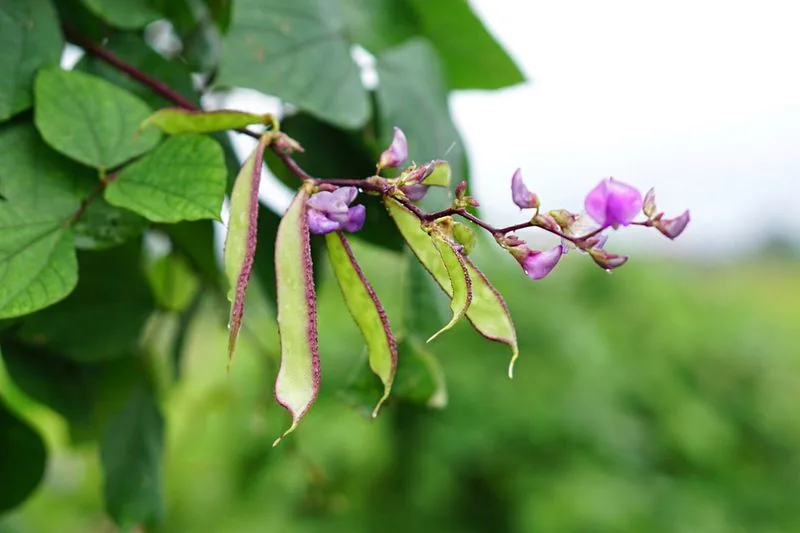
Lablab beans offer ornamental beauty and practical benefits. Known for their stunning purple flowers and dark pods, these beans are excellent nitrogen fixers. They thrive in a variety of soil types and warm climates, making them a versatile addition to gardens. As they grow, lablab beans enrich the soil, setting the stage for future plantings. Their fast growth rate and striking appearance make them both functional and decorative. Including lablab beans in your garden can lead to healthier soil and a more vibrant landscape.
Indigofera

Indigofera stands out not only for its nitrogen-fixing abilities but also for its ornamental value. This plant features delicate pink flowers that attract pollinators, enriching the garden ecosystem. Indigofera thrives in well-drained soil and sunny locations, making it suitable for various garden settings. Its nitrogen-fixing properties improve soil fertility, benefiting surrounding plants. By including indigofera in your garden, you enhance both beauty and productivity. Its adaptability and contribution to soil health make it a valuable addition.
Sunn Hemp

Sunn hemp is a fast-growing legume known for its impressive nitrogen-fixing capabilities. This plant is often used as a cover crop to rejuvenate and protect the soil. Its rapid growth suppresses weeds, while its yellow flowers attract pollinators. Sunn hemp’s ability to thrive in various soil types and climates adds to its appeal. By incorporating sunn hemp into your garden, you enhance soil quality and prepare the ground for future crops. Its dual role as a soil conditioner and pollinator attractor makes it a smart choice.

